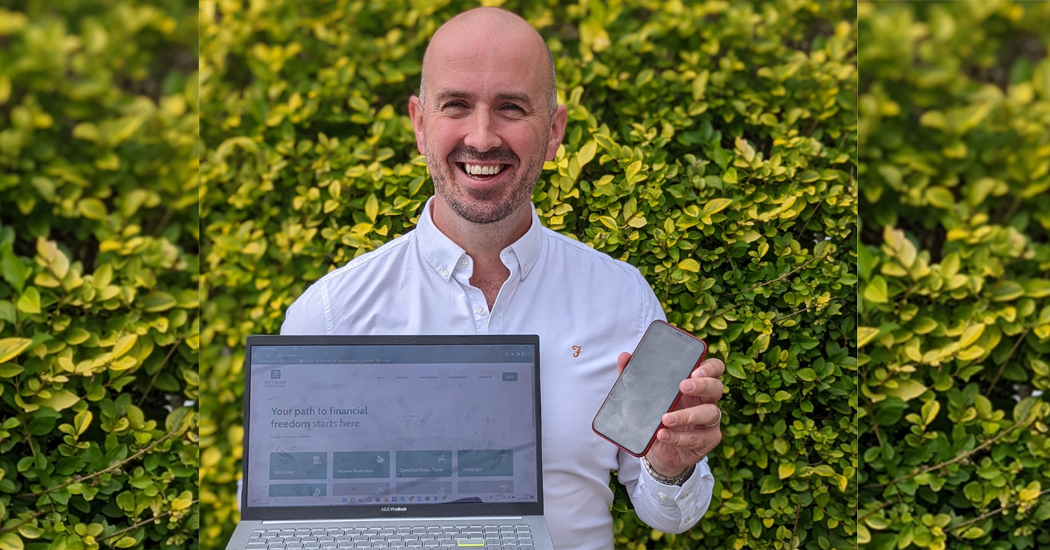From pre-packed sandwiches to saving the crumbs, Donegal Daily’s financial columnist Sean McNulty has ten top tips for being smart with your money.
Sean McNulty is the founder and Managing Director of Rethink Money Ltd, a financial advisory company based in Letterkenny. Free financial reviews can be booked by messaging info@rethinkmoney.ie or booking via the website www.rethinkmoney.ie
1) Buying now, Paying later
Being able to pay something off isn’t the same as being able to afford it. That big flat screen TV you pick up today comes with a heavy price tag tomorrow. Ask yourself if you really can’t do without and try to only purchase when you can afford to pay in full. Another trick is to leave it down for 2-3 days and come back if you really need it.
2) Not eliminating recurring outgoings
You’ve got that membership and hit the gym hard… in January. Then never again. Yet the monthly fee is being debited out of your account every month. You only ever use the internet on your phone sparingly yet that “Unlimited Data” add-on to your phone contract is sucking funds out of your savings account each month. You have subscribed to 1,400 TV channels plus the latest live sports and movies to choose from but you’ve rarely ventured past channel 5 and watch the sports at the pub. These are all extraneous recurring payments. An easy way to begin saving more money is to identify and eliminate these unnecessary cash sucking outgoings from your life.
3) Living beyond our means
It’s easy to go for the ‘top-of-the-line’, or ‘newly released’ but do you actually stop and ask yourself if you can live without it. Or are you just trying to keep up with the Jones’. Remember that cars are depreciating assets. If you buy new, the car loses value once you drive off the parking lot. Often people are entering into contracts for these cars that they don’t really understand. If possible, try to avoid paying for things in installments and consider shopping around for more cost-effective options. The prices of things today are shooting up so be careful and don’t get caught up in unnecessary hype.
4) Paying first, and saving later
Many people typically think of buying their luxuries first, and then saving whatever is left, assuming that they’ll be making more as they get older. The financially prudent save a set amount first, and then spend whats left over frugally. That way they always have a backup plan should things head south later in life.
5) Not cutting out convenience spends
You’re on the way home, a little thirsty so stop off for a bottle of water at the shop. Your wallets now lighter but you haven’t got anything you didn’t already have at home if you could just wait a little longer. Over the course of months and years these costs add up.
6) Buying pre-prepared
When it comes to food it pays to shop around. Buying things like non-perishables in bulk will usually save you greatly in the long run. When you have the choice between a prepared sandwich and the ingredients for sandwiches you can often save half your money or more and get a lot more bang for your buck buying large. The same goes for a small can of drink, vs the equivalent bottle of drink
7) Paying through the nose for brand recognition
When it comes to groceries you may will often save money ‘downgrading’ to the supermarkets own brand without noticing any discernible loss in quality or taste. Also watch that supermarkets have all the items they want you to buy (bigger mark-up/profit) at eye-level and the cheaper ones down low. Have a look next time and see.
8) Using credit cards excessively
Avoid paying for daily expenses like petrol and snacks with credit cards. Fees can quickly add up.
9) Not Budgeting
Even the most basic budget is better than none and having one will give you a birds-eye view of your incoming and outgoings and allow you plan effectively. There are heaps of free excel sheets online (but be mindful what you download. You can contact me for a free one)
10) Not opting into an employee pension fund with matched contributions
Many companies will match employee contributions in the workplace pension scheme. ‘Auto-enrollment’ is coming which means all companies, must put you in a scheme which the government will help contribute to. However, you will be way better getting a jump on this and looking at the tax relief available to you. The more money you put into your pension early on, the more comfortable you can live later in life. If you have not opted in (or are saving only a trivial amount) you are effectively refusing free money.
Tags:








